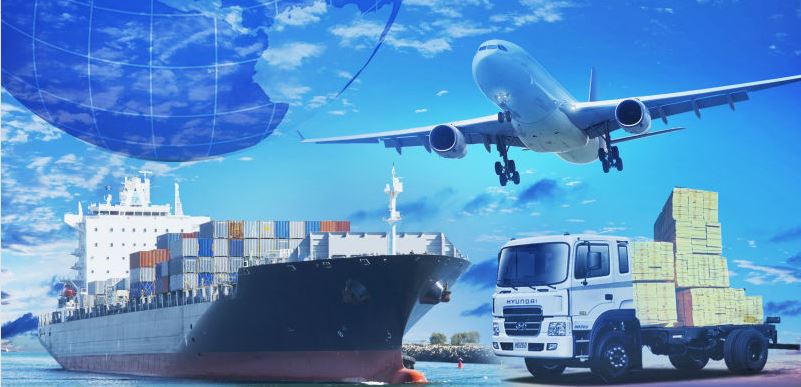
Difference between a freight forwarder and customs broker.
Freight forwarder and Customs brokers are two entities which play an integral part in carrying out logistics operations. Logistics is a very complex industry with multiple transit destinations and ports as mostly the transportation of cargo and goods have to be transported via international waters or air spaces. Hence it is always a collaboration of people, agents, and providers that have to contribute and make it happen.
Let us begin by first defining freight forwarder and customs brokers to get a better perspective of their job descriptions.
Freight Forwarder: A freight forwarder or a forwarding agent also commonly known as NVOCC, Non-vessel operating common carrier, is a person or a company that organizes shipments or individuals or corporations to get foods from the manufacturer or producer to either a market, customer or an end destination for the purpose of distribution.
As we read through the above definition it can be understood that forwarders are experts who are well connected with the supply chain and are completely dedicated to the physical transportation of cargo. Hence freight forwarder is a wide-ranging term that can also include activities engaging various third-party entities required in the exporting process who handles or are experts in shipment moving via truck, boat, plane or even a combination of all of these.
A freight forward is also involved in consolidating and completing various documentation as well as compliances required for the export activities. Here it would be better to elaborate on the fact that we can find many freight forwarders who are also customs brokers as well but it is essential to mention here that customs brokers cannot become freight forwarders.
Customs Brokers: A customs broker is a licensed agent whose primary function is to handle the process of clearing goods through the customers for importers. They act as an intermediary between the importer and the government customs department in the country for import and can be a private individual, partnership, association or corporation.
Brokers submit all necessary information, documents and appropriate payments to the customs on behalf of their clients and charge them a fee for their services. They must have expertise in the entry procedures, admissibility requirements, classification, valuation, and the rates of duty and applicable taxes and fees for imported merchandise.
Customs brokers are very specific in their services and also learn that an exporters freight forwarder can work in tandem with the customs brokers in order to help facilitate issues with an export transaction.
As can already be understood from the definition freight forwarding or freight forwarder is a very wide-ranging term and customs brokers are more specific when it comes to service deliverance.
Some of the key services provided by a Freight Forwarder is as follows :
-
Trading Transportation
-
All cargo pickup and drop in.
-
Negotiate freight charges
-
Getting all documents readied for exports and shipments.
-
Booking of necessary warehouse facilities
-
Dealing with the required cargo insurances.
-
Providing freight collection services.
Key services offered by customs brokers :
-
Customs valuation
-
Customs clearance.
-
International trade consultations
-
Tariff classifications
-
Dealing with all automated customs clearances.
-
Freight Management
-
Import and Export purchase order management.
SUMMARY: By now it is clear the difference of both these key entities in the logistics industry and the areas where both can converge in providing their services to customers, it is always essential that a good logistics partner will reduce a lot of your operational burdens. Having a good freight forwarder and a customs broker or even a company which provide you both these services are of utmost importance and invaluable as shipping can be the most difficult and a rigorous affair when you don’t have an expert to handle it.
Comments for this post are closed.
